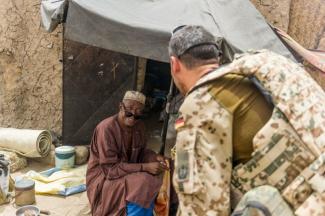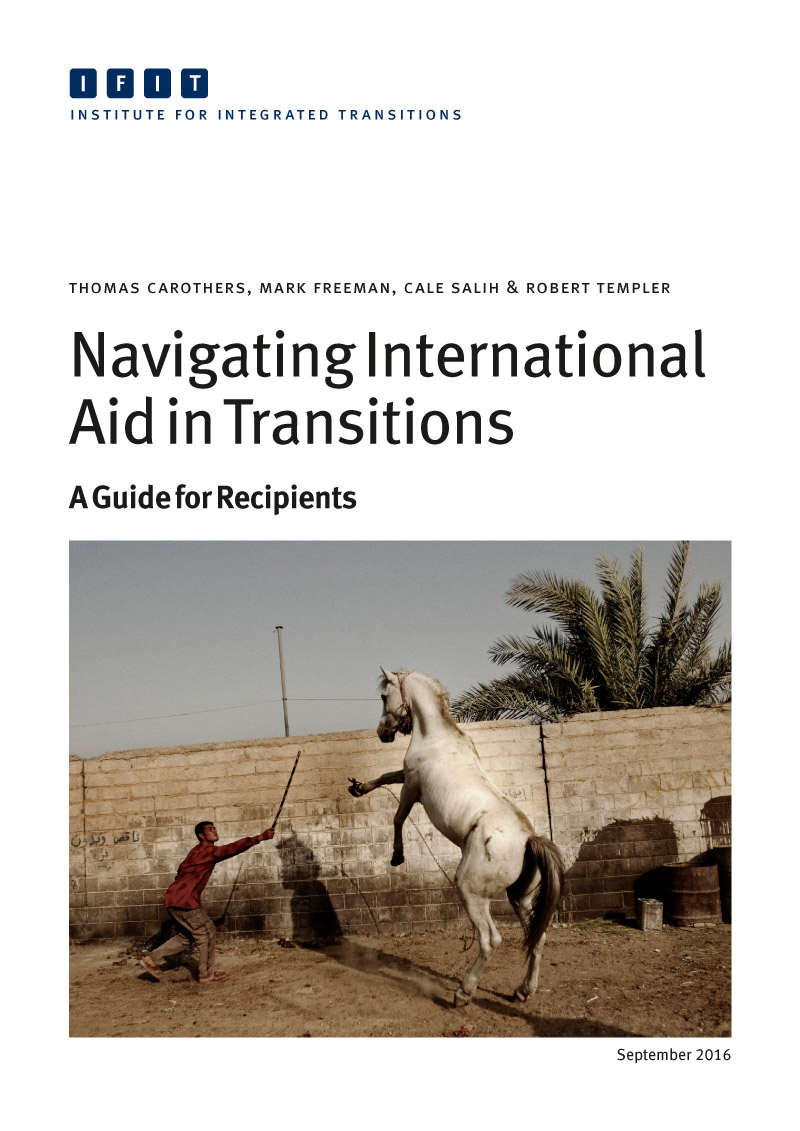Trade-offs
Peacebuilding

Social, political and economic exclusion cause and intensify violent conflicts. Fighting exclusion therefore contributes to promoting peace. That is in line with the goal of the 2030 Agenda to leave no one behind.
“This is not a new concept," stresses Oury Traoré, executive director of the Madiba Institute for Leadership in West Africa. “What is new is the commitment.” She says the international community has realised the need for global solidarity. The situation in a single country does not only affect that country. “What is happening in Mali cannot be viewed in isolation – it has global implications,” Traoré said during the Berlin Summer Dialogue 2017 hosted by the Development and Peace Foundation (SEF – Stiftung Entwicklung und Frieden). The topic was “exclusion as a cause of violent conflict – strategies for international cooperation”. Participants agreed that it is often difficult to tell “good guys” from “bad guys” in a conflict, so it is hard to find out who might play a positive role in a peace process.
According to Ute Finckh-Krämer, a member of the German Bundestag (parliament), potential peace builders are not necessarily those who share western values but those who traditionally play that role. “It is risky to label certain actors or conflict parties as terrorists,” she warns. “That renders any negotiations impossible.”
In Traoré’s eyes, not excluding anyone implies cooperating with questionable governments: “Even in a failed state, the government has to be involved – you cannot bypass them.” Lars-Erik Cederman, a conflict researcher, agrees. He insists that one has “to go through the government” as bottom-up approaches are bound to fail. He concedes, however, that there is a trade-off between stabilisation and change. Some leaders use stabilisation to establish long-term exclusion.
Traoré urges external advisors not to lead but to take over a supportive role without excluding anyone. She says it makes sense to pay attention to women and youths and other groups who might traditionally not be involved in conflict resolution in a given context. “If you don’t consider women, you will have no success,” she warns. Thomas Helfen of the German Ministry for Economic Cooperation and Development agrees, saying that everyday problems often affect women more directly than men. According to him, it is crucial to see women not only as victims, but as actors in a peace process.
The debate in Berlin showed that there are different kinds of exclusion. For example, intentional exclusion is not like unintentional exclusion, Moreover, conflicts are driven by perceived inequality rather than real inequality. Perceived injustice, however, cannot trigger civil war unless resources and infrastructure are available. According to Indra de Sousa, a political scientist, resources and support are often provided from outside. The Middle East and Afghanistan are prominent examples. He says that western countries are exerting massive influence, for instance by delivering arms.
Luxshi Vimalarajah of the non-governmental Berghof Foundation points to the mediating role of the international community in Yemen. It was heavily involved in the peace talks. “It was a textbook process, a lot of inclusion,” she says. „But now we know that important actors were excluded.” The negotiations failed, the war is on-going. It mattered, moreover, that the UN security council did not reach consensus, Vimalarajah says.
According to Aurélien Tobi of the Stockholm International Peace Research Institute (SIPRI) diverging goals and priorities are among the main reasons why peace promotion is so complicated: “We want to tackle jihadism, drug trafficking, illegal migration.” The problem is that priorities of international partners may differ from those of the national government which may again differ from those of local civil society, he argues. “We say they don’t have the political will – but maybe the political will is just different.“










